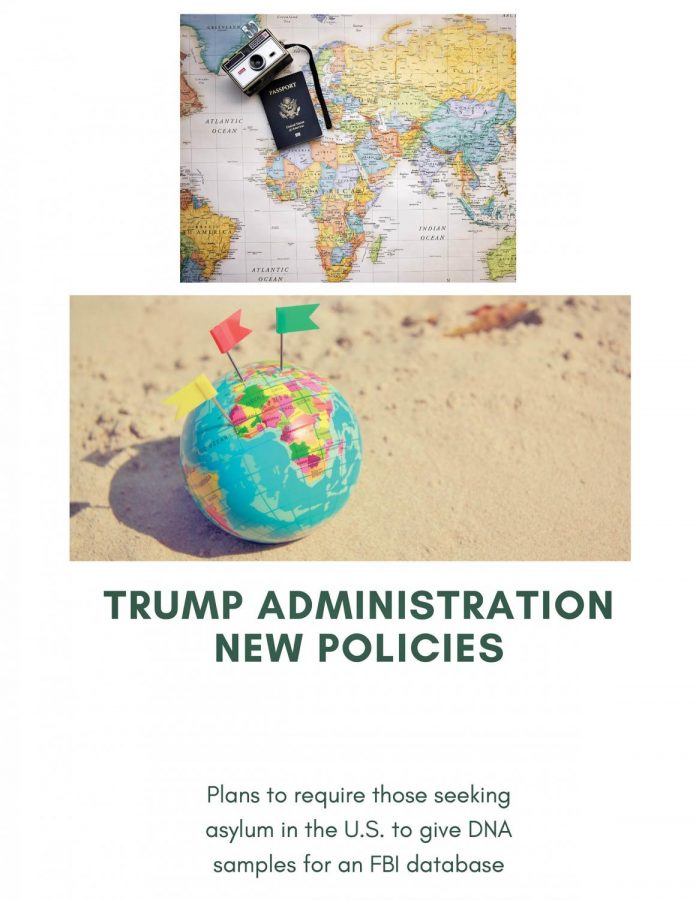Proposal of DNA collection policy inhumane, invasive, ultimately unnecessary
The department of Homeland Security released a detailed plan regarding the Trump administration’s new plan earlier this month. Officials said that their proposed plan is protected under a statute known as the DNA Fingerprint Act of 2005.
The Trump administration is facing a large amount of controversy because of their planned actions against immigrants seeking asylum. Since elected president in 2016, President Trump has been heavily criticized for his stance on immigration. A TIME article details yet another plan of action that the Trump administration aims to take on those seeking asylum.
The article states that the administration plans to take DNA samples from those seeking asylum to submit to an FBI database used to help find criminals. Children under 14, as well as those entering the U.S. legally, will be exempt from this process.
As of right now, the only time that DNA samples are taken from migrants is in the event that they are prosecuted for a criminal offense. However, fingerprints of immigrants over the age of 14 are already collected by Customs and Border Protection. This new process has raised multiple concerns regarding privacy and the policy’s true motive because of the amount of data that would be collected.
“That could really change the purpose of DNA collection from one of criminal investigation to population surveillance,” said American Civil Liberties Union attorney Vera Eidleman, as quoted in the TIME article.
Officials from Homeland Security and the Justice Department are figuring out the details of implementing the process. What is known currently is that the FBI would provide the DNA swab kits necessary and train border officials on how to collect samples in a quick manner.
The Trump administration claims that the goal of this new process is to solve more crimes by having DNA samples in an FBI database. While this could potentially be one of the goals, there are other possible motives.
President Trump has made numerous controversial statements i on his feelings towards those seeking asylum and has even taken action to prevent them from entering the country. Because of this history, it is hard to believe that there is any other real motive besides preventing immigrants from entering the U.S.
President Trump has often used crimes committed by immigrants to justify stricter border control, despite the fact that studies and statistics have proven that both legal and illegal immigrants are not as likely to commit criminal offenses as U.S. citizens. Therefore, this new process doesn’t seem necessary and appears to simply be another attempt by the Trump administration to curb immigration. It is understandable why these new processes are bringing up privacy concerns. The new policies seem unnecessary, appear to have an ulterior motive and must be questioned.

I'm Isabella Bass, and I'm a junior Writing and Rhetoric major with a concentration in Journalism and Digital Media. I've lived in Austin my whole life,...







